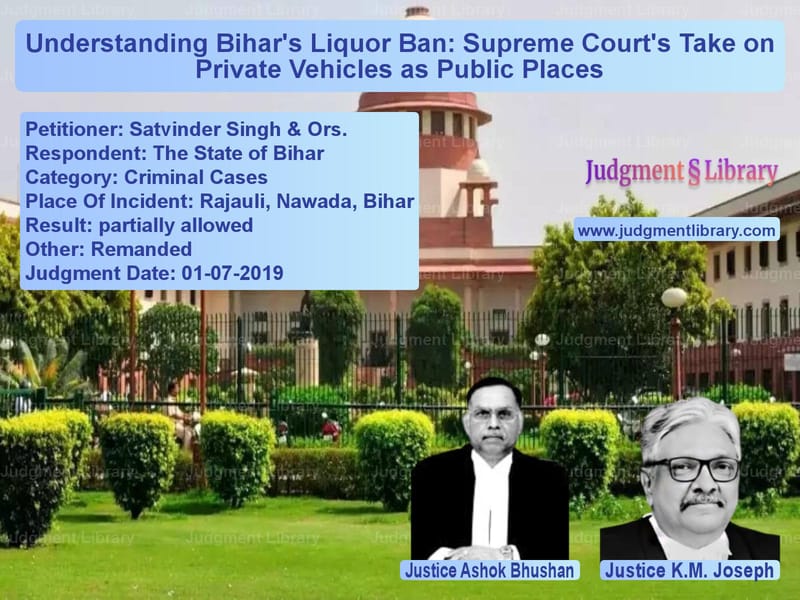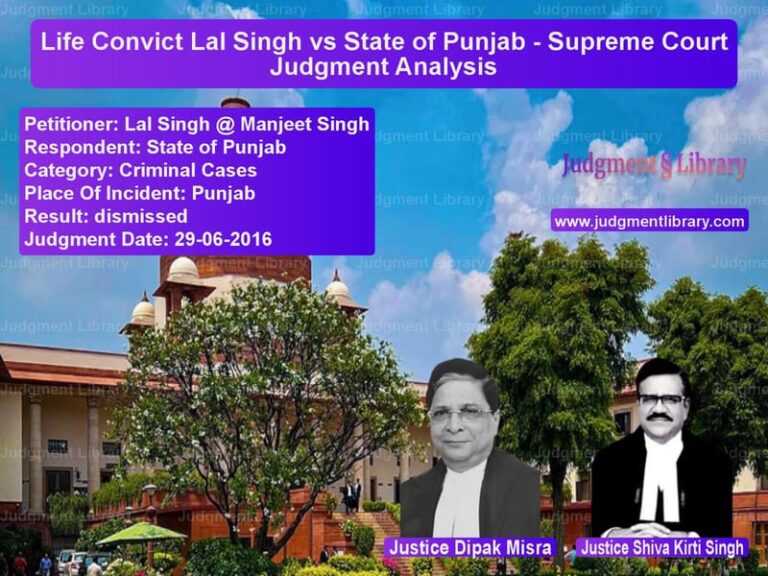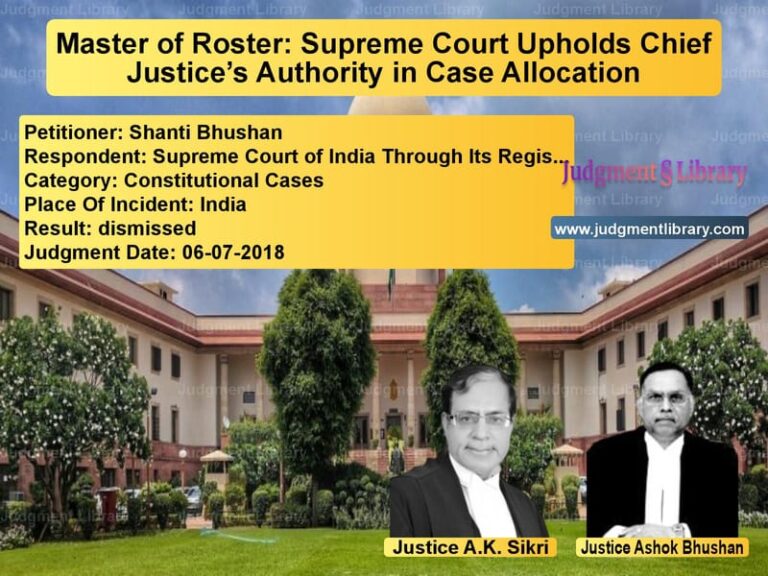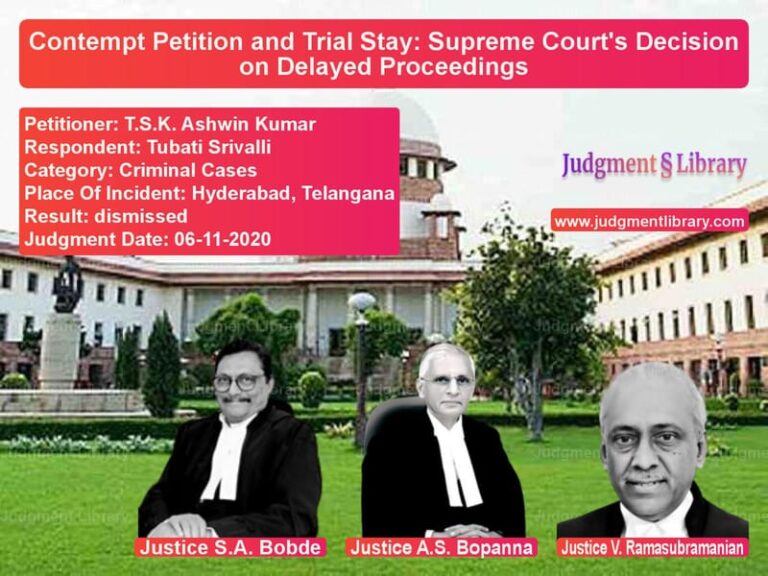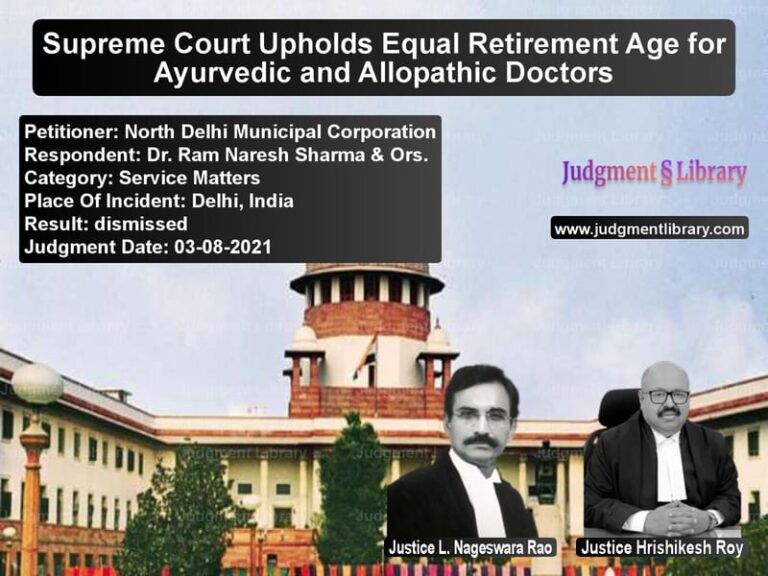Understanding Bihar’s Liquor Ban: Supreme Court’s Take on Private Vehicles as Public Places
The case of Satvinder Singh & Ors. vs. The State of Bihar highlights a crucial legal battle surrounding Bihar’s strict prohibition laws. The appellants, all Rotarians, were arrested under Section 53(a) of the Bihar Excise (Amendment) Act, 2016, for allegedly consuming alcohol while traveling in a private vehicle within Bihar. This case brings to light key issues of legality, interpretation of ‘public place,’ and the extent of state authority in enforcing prohibition.
The appellants were traveling from Giridih, Jharkhand, to Patna, Bihar, on June 25, 2016. Their vehicle was stopped at the Rajauli Check Post in Nawada, Bihar, where they were subjected to a breath analyzer test. While no liquor bottles or other incriminating materials were found, alcohol was detected in the breath samples of the appellants. Consequently, they were arrested and later charged under the Bihar Excise (Amendment) Act, 2016.
Petitioner’s Arguments
The appellants contended that:
- No liquor bottles were found in their possession, making the accusation of alcohol consumption baseless.
- The Bihar Excise (Amendment) Act, 2016, defined a public place as one where the public has access. A private vehicle, in their view, did not fall under this definition.
- The amended Bihar Prohibition and Excise Act, 2016, later expanded the definition of a public place to include both public and private transport, but this was not in effect at the time of their arrest.
- They had consumed alcohol outside Bihar, and their mere presence in the state while intoxicated should not constitute an offense under Section 53(a).
Respondent’s Arguments
The State of Bihar, defending its prohibition laws, argued that:
- Bihar is a dry state, and any person found intoxicated within its borders violates its strict prohibition laws.
- The appellants’ vehicle was on a public road, making it a public place under the existing legal framework.
- The legislative intent of the prohibition laws was to ensure a complete alcohol ban, including penalizing individuals found intoxicated within the state.
Supreme Court’s Judgment
The Supreme Court, led by Justices Ashok Bhushan and K.M. Joseph, analyzed the legal aspects surrounding the definition of ‘public place’ and the applicability of the prohibition law.
Key observations by the Court:
- The Bihar Excise (Amendment) Act, 2016, defined ‘public place’ as a location where the public has access, including open spaces.
- Section 2(17A) of the Act, applicable at the time of the incident, did not explicitly include private vehicles within the definition of a public place.
- However, the term ‘place’ under the Bihar Excise Act, 1915, included vehicles, leading to an inference that private vehicles could fall within the purview of public places.
- When a private vehicle is on a public road, it is accessible to the public, satisfying the requirement of ‘public place’ under the law.
- The updated Bihar Prohibition and Excise Act, 2016, specifically included private vehicles within the definition of ‘public place,’ reinforcing the government’s stand on prohibition.
Critical Judgment Excerpt: “When private vehicle is passing through a public road, it cannot be accepted that the public has no access. Public may not have access as a matter of right but definitely have the opportunity to approach the private vehicle while it is on a public road.”
Final Decision
Although the Supreme Court did not directly acquit the appellants, it allowed them the liberty to file an application for discharge before the Magistrate. The trial court was instructed to evaluate the available evidence and decide accordingly.
Implications of the Judgment
This ruling establishes a significant precedent in Bihar’s prohibition laws:
- Private vehicles, when on public roads, can be considered public places for the purpose of prohibition enforcement.
- Even if alcohol is consumed outside Bihar, being intoxicated within Bihar can lead to legal consequences under certain interpretations of the law.
- Citizens traveling into Bihar from states where alcohol is legal must exercise caution to avoid legal repercussions.
The judgment reiterates the state’s commitment to stringent prohibition enforcement and clarifies the extent to which prohibition laws can be applied. As the legal landscape evolves, similar cases may further refine the interpretation and implementation of prohibition laws in India.
Petitioner Name: Satvinder Singh & Ors..Respondent Name: The State of Bihar.Judgment By: Justice Ashok Bhushan, Justice K.M. Joseph.Place Of Incident: Rajauli, Nawada, Bihar.Judgment Date: 01-07-2019.
Don’t miss out on the full details! Download the complete judgment in PDF format below and gain valuable insights instantly!
Download Judgment: Satvinder Singh & Or vs The State of Bihar Supreme Court of India Judgment Dated 01-07-2019.pdf
Direct Downlaod Judgment: Direct downlaod this Judgment
See all petitions in Bail and Anticipatory Bail
See all petitions in Judgment by Ashok Bhushan
See all petitions in Judgment by K.M. Joseph
See all petitions in partially allowed
See all petitions in Remanded
See all petitions in supreme court of India judgments July 2019
See all petitions in 2019 judgments
See all posts in Criminal Cases Category
See all allowed petitions in Criminal Cases Category
See all Dismissed petitions in Criminal Cases Category
See all partially allowed petitions in Criminal Cases Category

